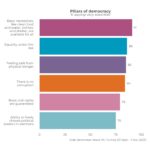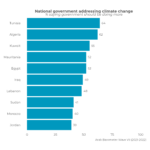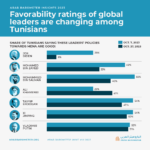Women’s yearning for fairness and equality has the support of overwhelming majorities in the Arab world.
This year, as it is the case every year, the world marks International Women’s Day on March 8.
The commemoration is usually an occasion for celebration of the milestones achieved. In the Arab world, there have been quite a few such recent milestones that deserve to be highlighted. Women have acceded to senior ministerial posts, including the defence and justice portfolios, in Lebanon and Tunisia. Reforms adopted in Saudi Arabia have allowed women to enjoy unprecedented freedoms. Measures introduced in the UAE and Morocco have enhanced women’s rights in the workplace and in society.
Much of the credit for progress achieved goes to the women of the region themselves as they press for their rights. Enlightened leaderships have also played a big role in overcoming the resistance of regressive forces wary of women’s rights. The momentum for reform is boosted by Arab public trends increasingly favourable to gender equality, especially in terms of education and work.
A recent Arab Barometer survey showed that only shrinking minorities still said that a university education “is more important for men than women.” Only 21% of respondents in the region shared that opinion in 2019 compared with 26% in 2006. In Jordan, the percentage decreased from 35% to 17%; in Morocco, from 25% to 15%.
Also, support for the outdated notion that a woman’s place is in the home continues to thin. Those who today say that “a married woman can work outside the home” total 90% in Lebanon, 88% in Tunisia, 86% in Egypt and 86% in the Palestinian territories.
Such reassuring trends cannot, however, hide lingering gaps in everyday reality. Educational attainment by female students hardly matches the rate of access by women to the labour market. For many reasons, including legal, social and cultural constraints, that rate remains one of the lowest in the world, leading to a staggering imbalance between the participation of men and women in the workplace. And that comes with a cost…
Read the full article at The Arab Weekly

